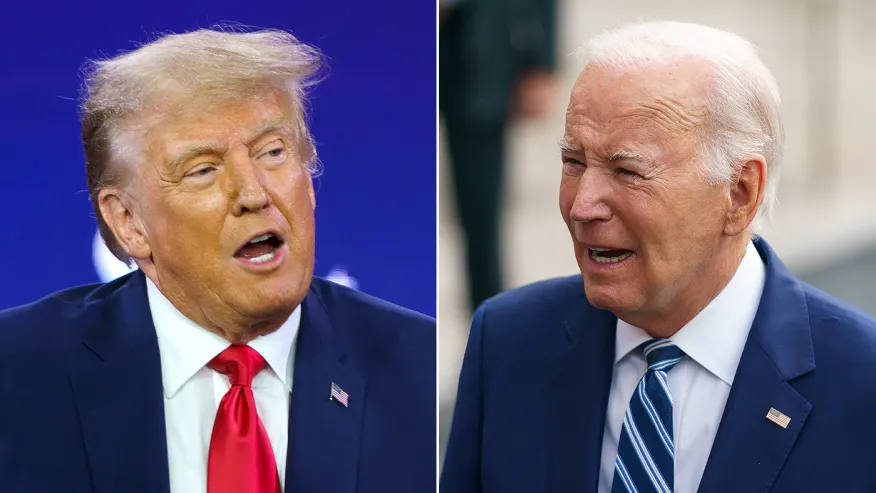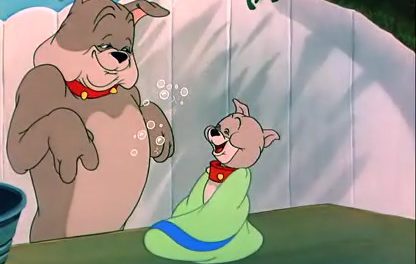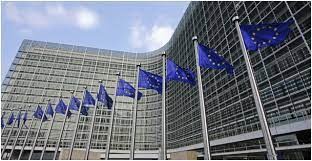America is a zombie state today, demonic nihilism has infected the nation, says Jacob Howland, rector of the University of Austin and director of the Spiritual Foundations Program.
“Every nation gets the government it deserves,” wrote the philosopher Joseph de Maistre, and some still do, and pretty well. De Maistre's moral interpretation of politics admits exceptions, but the contemporary United States is not one of them. A wasteful tide of rotting education and corruption is rotting the cultural and constitutional pillars that have kept the United States afloat since the Civil War.
The American regime has become a tasteless parody in which the politician-actors, hypocrites in Greek, are the characters of a disgusting farce.
Before the 2024 elections, Donald Trump is portrayed as the persecuted savior of the American republic, and Joe Biden as the defender of the righteous. It doesn't matter that Trump is narcissistic and impulsive to the point of stupidity, that Biden is senile and obviously corrupt, and that both of these crotchety old men are frauds and storytellers. These offenses do not matter to their furious followers, who love their man precisely because he is not the hated other. Trump and Biden cannot and do not want to be separated from each other; both need an opponent like a hammer needs a nail.
And above the wretched spectacle sits the click-hungry media, feeding on the riot and picking their favorites like pagan gods.
This drama of political decadence resists easy categorization. Aristotle wrote that tragedy depicts people who are better and comedy depicts people who are worse than us, the audience. Biden and Trump are certainly worse than the people who voted them into office, but they are far from funny. Their antics are repulsive and their stupidity unlovable. For them, and for the choirmasters trailing along in their wake - hollow puppets like Rudy Giuliani sweating hair dye or Anthony Fauci who claims to be science himself - Americans feel only shame and dread, without the cathartic release of laughter or tears.
These trapped emotions stem from the same source: visceral reactions to the impending death by aging of the American experiment in regulated freedom.
The problem goes well beyond presidential dementia. The US Senate (from the Latin senex, "old") looks more like a geriatric neurologist's waiting room than a council of wise old men. There's Mitch McConnell, prone to falls and freezes; the wheelchair-bound and confused Dianne Feinstein; and John Fetterman, who, at just 53, is less fit for public service than any other member of the once-esteemed body. It's as if C-SPAN, the channel that broadcasts the congressional hearings, decided to broadcast absurd, post-apocalyptic horror movies instead.
The zombification of the Capitol—not to mention the streets of the city, which have become home to dazed and confused people—is merely a symptom of the underlying disease.
Like all institutions, politics falls apart if it does not receive regular constructive energy. A modern democracy is only healthy if the major parties grow organically out of their electorates and represent their interests through habit and inclination rather than conscious effort.
But the bottom-up politics that Tocqueville admired when he visited the United States in the 1830s had long since given way to the top-down expansion of technocratic managerialism. Our ruling elite represent no one but themselves and their cronies, and they are not happy about the shake-up of the system. Insurgent candidates like Robert Kennedy Jr. and Vivek Ramaswamy, whose public elevation of the concerns of many Americans aims to renew national politics, are censored and face active opposition, even within their own parties.
The sources of individual and social vitality have dried up not only in politics. Americans are marrying less and later, and having too few children to reproduce themselves and the families that support them.
Moreover, our public schools have largely ceased to pass on the accumulated knowledge and civilizational wisdom of the past to our children. A taste for historical denial has permeated the entire culture, prompting curators to "contextualize" art, city governments to remove statues, colleges to rename buildings, and publishers to censor or rewrite books. However, creativity withers when it is no longer nourished by the oxygen-rich blood of tradition. No wonder Hollywood is increasingly cannibalizing its legacy by pouring old movies into new, plastic scenarios.
Technology has further enhanced our national energy wealth. We have become charging stations for our smartphones, draining mental energy with the endlessly distracting and overloaded pile of information. Video calling and working from home limit face-to-face interactions with the actual people who would otherwise be with most of the waking hours of the week. Targeted advertising, fine-tuned algorithms, and politically stratified social media drastically reduce our exposure to new ideas.
We sink into our own private caves and watch flickering images in the dark.
Artificial intelligence language learning models offer a cautionary tale for larger cultural developments. Programs like ChatGPT, whose writing remains formulaic and error-prone, learn by sifting through a sea of digitized text, increasingly composed of AI-generated content. The predictable result of this feedback loop is the kind of leveling we've seen in our institutions.
Like newspapers drinking their own ink - which one doesn't these days? –, their product can only be worse.
Cultural exhaustion, social withdrawal and a general weakening of the vital forces are the practical expression of the will for nothing. This state of mind and spirit has a name, and it is nihilism. Nihilism is demonic in that the will for nothing is still a will, a life force. The fact that this is only negative is in no way reassuring, because it is easier and more economical to destroy than to build. The destruction is dramatic and achieves the illusion of vitality with relatively little energy. And who in this apocalyptic age, including the nihilist, doesn't want to feel a little alive?













